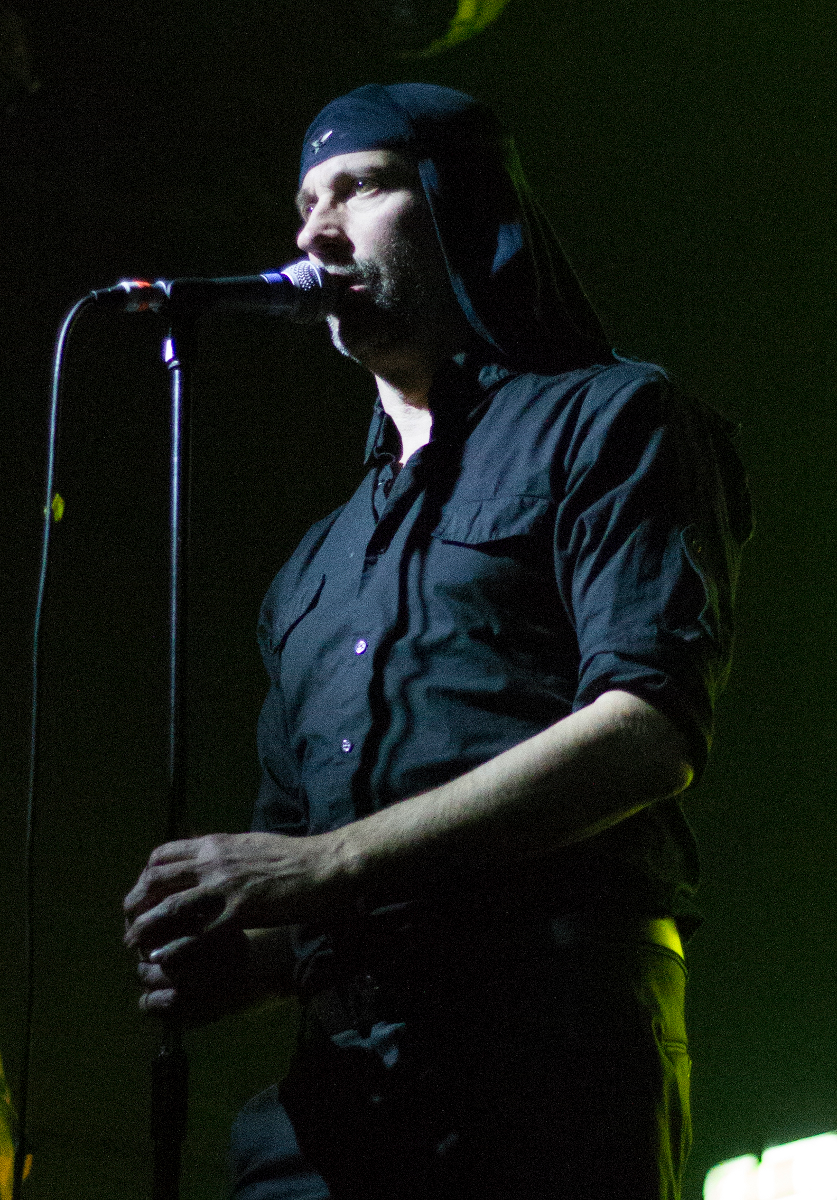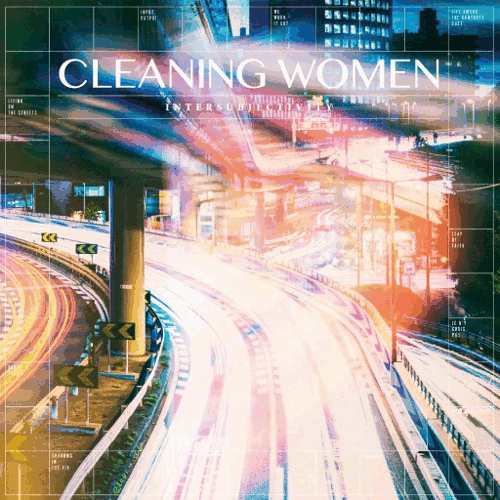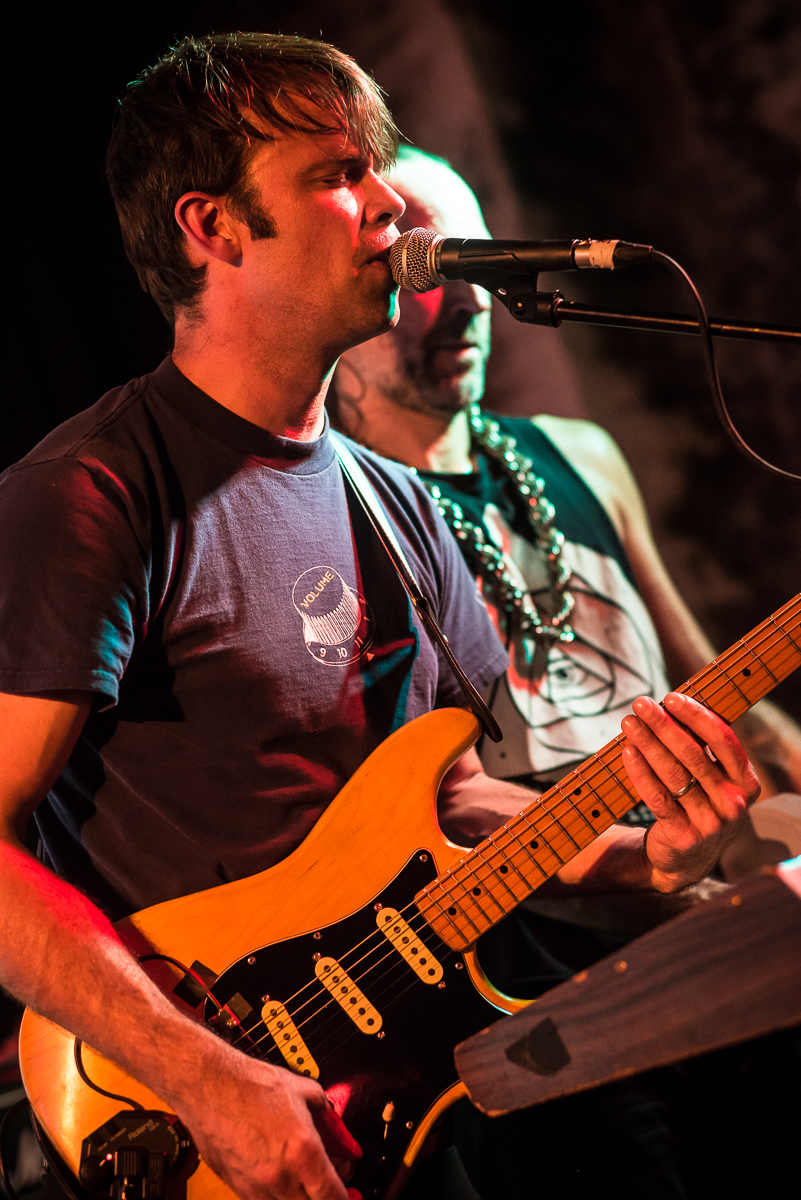A spectre is haunting Camden, and that spectre is the spectre of Spectre, Laibach‘s most recent and sublimely poppy album.
On the face of it, you’d think Laibach’s “foregrounding the totalitarianism inherent in pop music” schtick would have worn thin really fast, like a one-joke Damien Hirst piece that blows your head off at first and then gives you no real reason to go back to it. But after 35 years – and let’s not forget that’s three and a half decades which have seen the fall of the Berlin Wall, the beginning of The War Against Terror and, closest to home for the band, the break-up of Yugoslavia – the novelty has yet to wear off.
This is, of course, for several reasons – first, that they’ve always worked on many levels, and it’s never really been a one-gag thing at all. Second, their subject matter is so deep and complex that there’s always a new angle of attack. And third, and most importantly, they’re a cracking good band who know how to put on a show.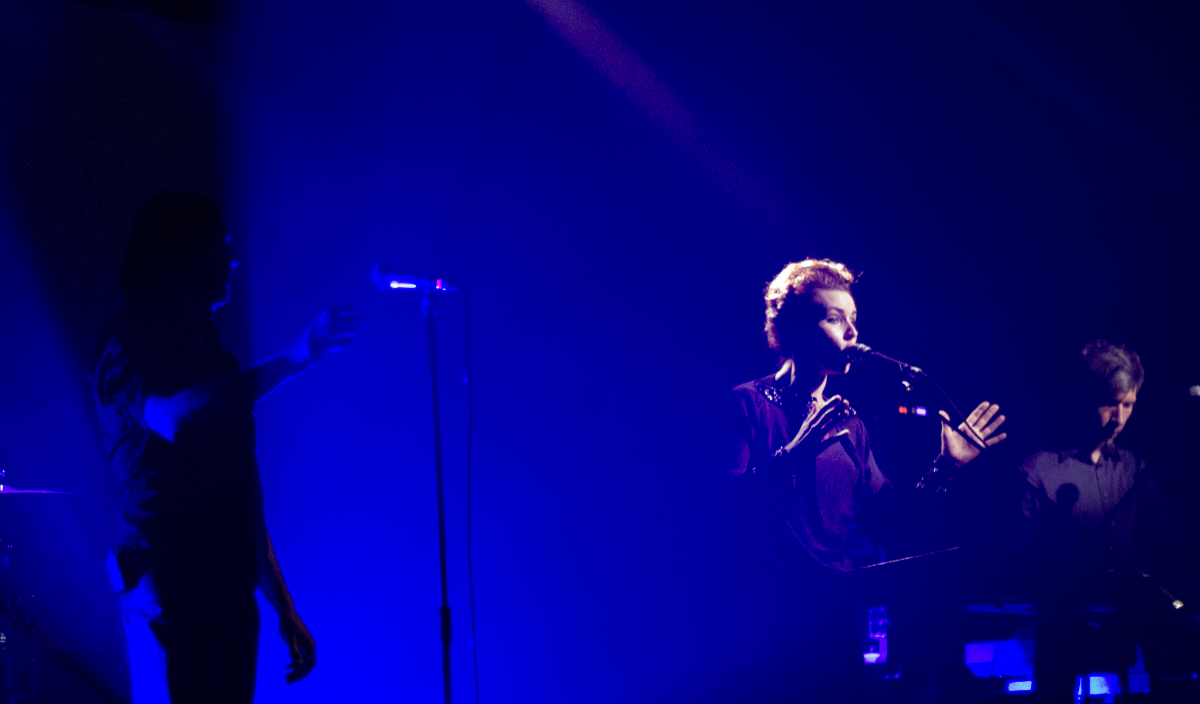 Tonight they’re putting on that show in the Electric Ballroom, their proclamations backed by screens alternating relevant footage with neo-Situationist sloganeering. They kick things off with the slow, majestic burn of their own idiosyncratic interpretation of a section from Grieg‘s unfinished “Olaf Tryggvason”, Milan Fras and Mina Špiler duetting over a gathering storm of drums and electronics.
Tonight they’re putting on that show in the Electric Ballroom, their proclamations backed by screens alternating relevant footage with neo-Situationist sloganeering. They kick things off with the slow, majestic burn of their own idiosyncratic interpretation of a section from Grieg‘s unfinished “Olaf Tryggvason”, Milan Fras and Mina Špiler duetting over a gathering storm of drums and electronics.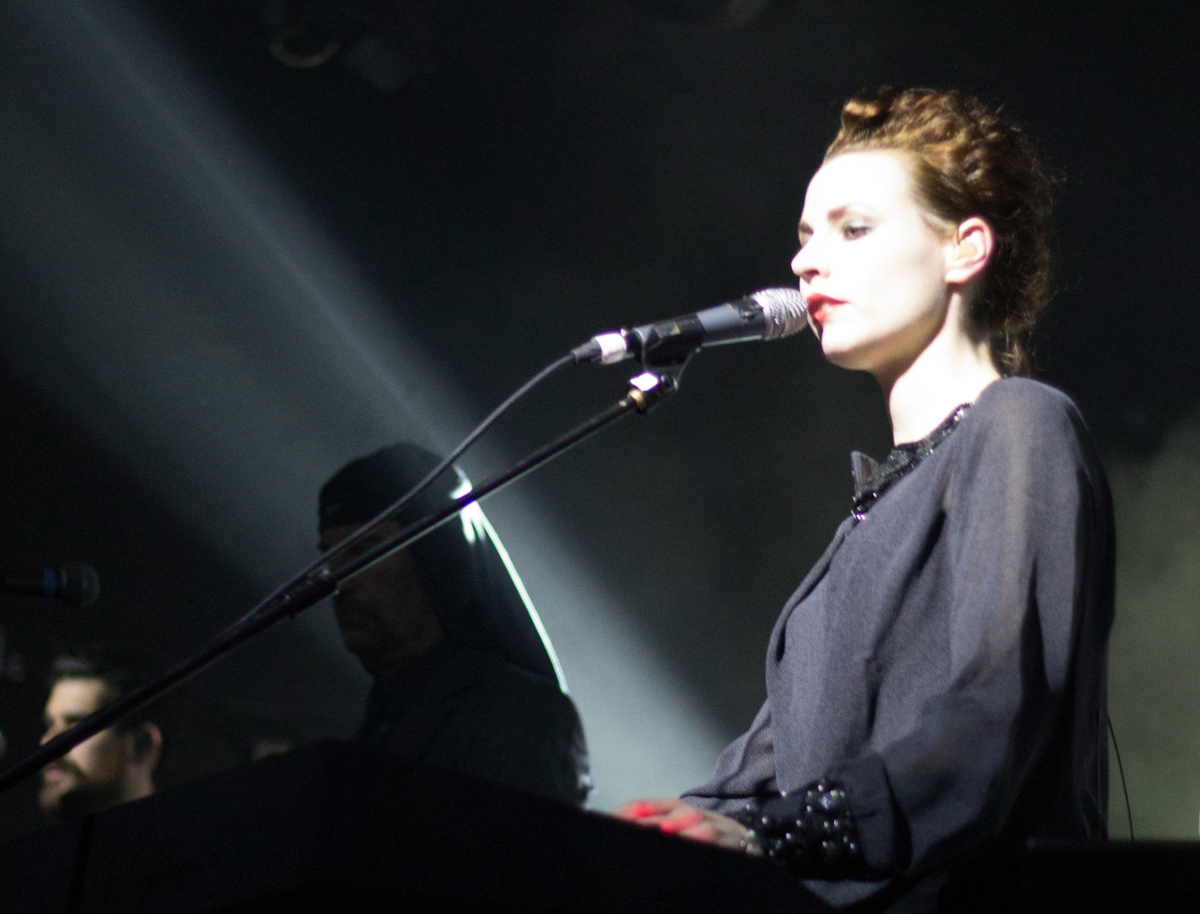 2015 Laibach is as much about revolution as dictatorship, as befits the changing world in which we live, their aesthetic having thematically kept pace with Slovenia itself. Their twin-vocalist setup (not actually twins, of course, that would be Bros — mind you, Bros did actually look like members of the Hitler Youth themselves, so maybe they were making some kind of grand artistic statement too? Seems unlikely, though…) serves to nicely illustrate the dichotomy of revolution, with Milan as the grizzled old veteran fully aware of the human cost, and Mina the immaculately-turned-out, bright-eyed and dangerously zealous apparatchik. I’d hardly be surprised if she stopped to say “As Chairman Mao said, and I’m sure we all know the text…”, although that would disrupt the flow, which is brutal and relentless.
2015 Laibach is as much about revolution as dictatorship, as befits the changing world in which we live, their aesthetic having thematically kept pace with Slovenia itself. Their twin-vocalist setup (not actually twins, of course, that would be Bros — mind you, Bros did actually look like members of the Hitler Youth themselves, so maybe they were making some kind of grand artistic statement too? Seems unlikely, though…) serves to nicely illustrate the dichotomy of revolution, with Milan as the grizzled old veteran fully aware of the human cost, and Mina the immaculately-turned-out, bright-eyed and dangerously zealous apparatchik. I’d hardly be surprised if she stopped to say “As Chairman Mao said, and I’m sure we all know the text…”, although that would disrupt the flow, which is brutal and relentless.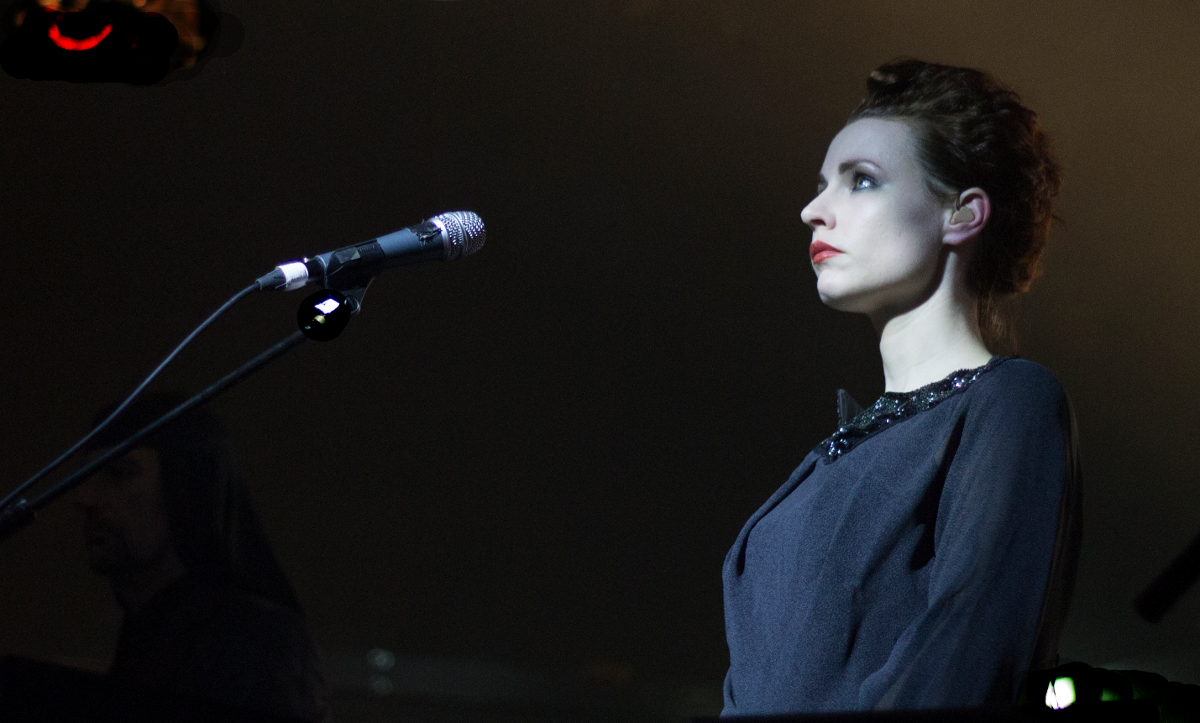 The songs from Spectre are, as one would expect, even more bombastic and imperial-sounding live, especially when “Walk With Me” is illustrated by video of marching boots, and the pauses before each climactic “EUROPE IS FALLING APART” in “Eurovision” are almost unbearably tense, a tide of operatic mayhem about to be unleashed from behind a ruptured dam. “B Maschina” is accompanied by footage from the Laibach-scored Moon Nazis comedy Iron Sky, marking the point at which the humour inherent in Laibach’s straight-faced and strait-laced performance is allowed to show itself in the open. Apart from the pre-recorded audience banter, obviously, which is genius. “All the people on the left say ‘Ho’”, says an emotionless and disembodied voice. “You guys rock” and even at one point “No Sieg Heiling please”, a joke with thankfully actually works as comedy rather than being required as an instruction, the Nazis who used to show up at their gigs clearly having realised at some point in the last few decades that no, this actually WASN’T made for them.
The songs from Spectre are, as one would expect, even more bombastic and imperial-sounding live, especially when “Walk With Me” is illustrated by video of marching boots, and the pauses before each climactic “EUROPE IS FALLING APART” in “Eurovision” are almost unbearably tense, a tide of operatic mayhem about to be unleashed from behind a ruptured dam. “B Maschina” is accompanied by footage from the Laibach-scored Moon Nazis comedy Iron Sky, marking the point at which the humour inherent in Laibach’s straight-faced and strait-laced performance is allowed to show itself in the open. Apart from the pre-recorded audience banter, obviously, which is genius. “All the people on the left say ‘Ho’”, says an emotionless and disembodied voice. “You guys rock” and even at one point “No Sieg Heiling please”, a joke with thankfully actually works as comedy rather than being required as an instruction, the Nazis who used to show up at their gigs clearly having realised at some point in the last few decades that no, this actually WASN’T made for them.
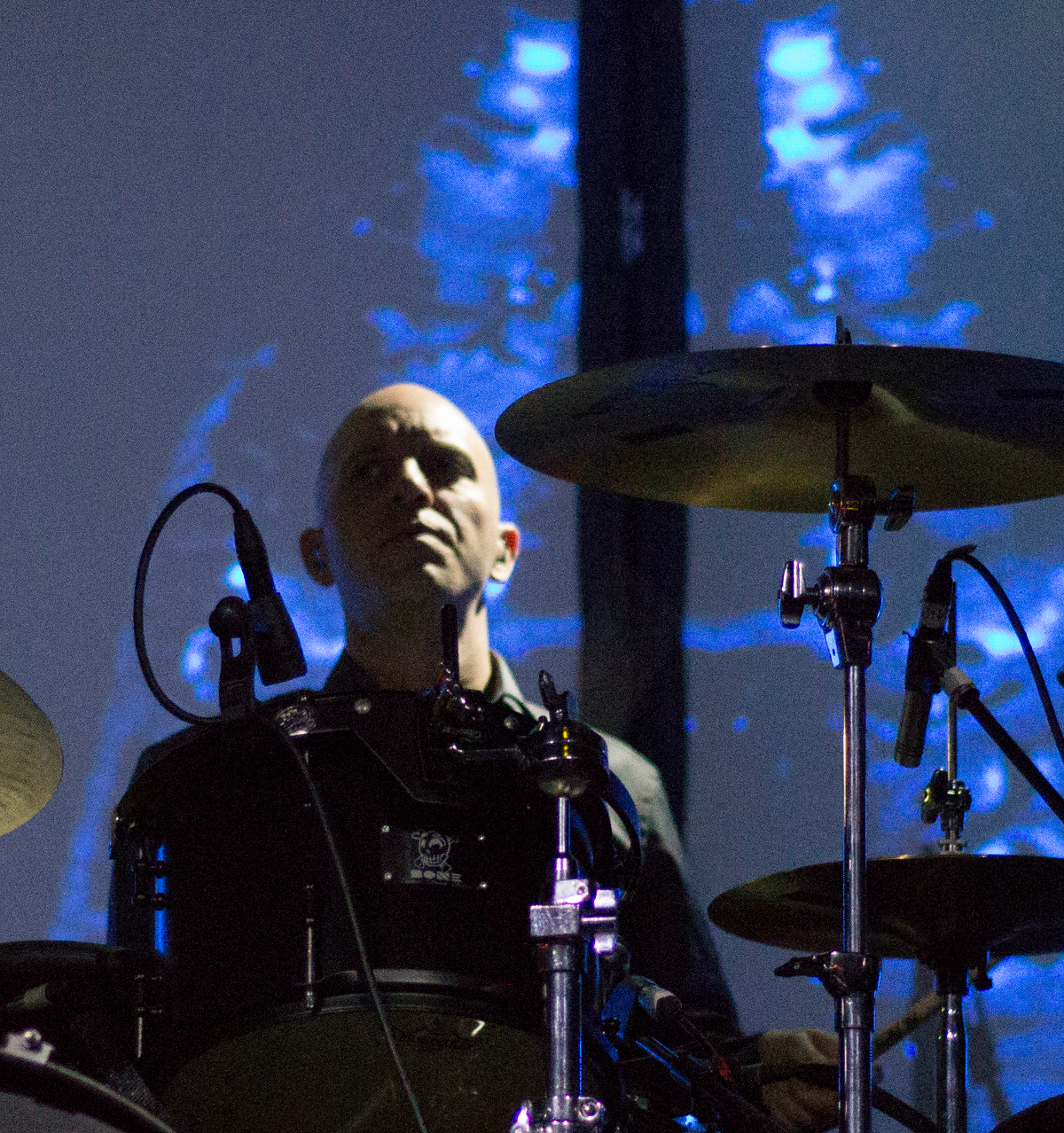 Of their legendary cover versions we get “Each Man Kills The Thing He Loves”, a superbly sinister reading of “Ballad Of A Thin Man”, “See That My Grave Is Kept Clean”; and as encores the classic crowd-pleasers “Geburt Ein Nation” (the track that for me best encapsulates Laibach’s ethos by taking Queen to Nuremberg) and finally the song that first brought them to attention in the UK, their Wagnerian take on Opus‘s long-forgotten “Life Is Life”, which Laibach’s version now seems to have almost entirely supplanted; there’s a political analogy in there for sure. As there is in pretty much everything they do, and the joy of it is that those analogies are so slippery, so resistant to one simple reading, that they will likely never end up joining Hirst’s medicine cabinet in the “Wow, I thought that was awesome once” drawer.
Of their legendary cover versions we get “Each Man Kills The Thing He Loves”, a superbly sinister reading of “Ballad Of A Thin Man”, “See That My Grave Is Kept Clean”; and as encores the classic crowd-pleasers “Geburt Ein Nation” (the track that for me best encapsulates Laibach’s ethos by taking Queen to Nuremberg) and finally the song that first brought them to attention in the UK, their Wagnerian take on Opus‘s long-forgotten “Life Is Life”, which Laibach’s version now seems to have almost entirely supplanted; there’s a political analogy in there for sure. As there is in pretty much everything they do, and the joy of it is that those analogies are so slippery, so resistant to one simple reading, that they will likely never end up joining Hirst’s medicine cabinet in the “Wow, I thought that was awesome once” drawer.
They are Laibach. Resistance is futile.
-Words: Justin Farrington-
-Pictures: Dave Pettit-
